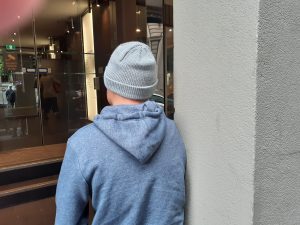Refugee medico rebuilding his life
Burmese refugee Dr Kyaw* was looking forward to successful medical career in his homeland when his world was turned upside down.
A doctor in Myanmar’s largest city, Yangon, Kyaw was set to become a medical specialist and had dreams of making a difference in the country’s under-resourced health sector.
But, like tens of thousands of his countrymen, Dr Kyaw’s life changed on February 1, 2021 when a military coup saw Myanmar’s newly elected government deposed by the military, known as the Tatmadaw.
A year-long state of emergency was declared and power transferred to the military chief Min Aung Hlaing. 
The results of the November 2020 election were declared invalid and President Win Mint and State Counsellor Aung San Suu Kyi were detained.
The military then began a brutal crackdown on dissenters which saw hundreds of people killed on the streets and thousands locked up.
“Three days after the coup I joined a civil disobedience movement with thousands of others,” Dr Kyaw said.
“I didn’t participate in any protests or demonstrations and I didn’t join any organisation, but things got complicated after that,” he said.
“About a month later I discussed with my family what to do and I decided to change my location for safety because the military were oppressing people who participated in the civil disobedience movement and even their families.”
Dr Kyaw laid low, followed the life of Buddhist monk for three months – not an unusual thing from men in Myanmar to do – observing religious rites and keeping a low profile.
Four months after the coup, Dr Kyaw was charged under Myanmar’s anti-sedition laws.
“These were related to things I had nothing to do with. It was very worrying and serious because the military was treating people with brutality and killing people,” he said.
“We were living in a village on the border as illegals which was difficult because we were not allowed to work.”
On arrival in Thailand Dr Kyaw and his family contacted the Australian embassy asking for help.
He was granted a refugee visas but his mother and siblings were deemed to be not at as much risk as Dr Kyaw, who would face sedition charges in Myanmar.
“My family members are still living in the village on the border and things are getting harder for them. It’s difficult to live in Thailand as an illegal and they have been there a long time.” Dr Kyaw said.
“They told me they were thinking about going back to Myanmar, even though the conditions there were almost impossible, but I told them to wait.”
Dr Kyaw’s family survived a near miss when his sister returned briefly to their house in Yangon.
“When I was charged, the military came to our house to arrest me. My sister had been there a little while earlier and just missed them.” he said.
“So it was fortunate because the military would not have hesitated to take hostage family members or relatives if they could not get the person they wanted.” he said.
Dr Kyaw says being charged with offences that carry sentences of many years in jail or worse was traumatic and may be related to his background as a member of one of Myanmar’s ethnic minorities.
“As soon as I was charged I felt like I was in jail. Even if I had to pass through a gate or checkpoint my heart would be pounding.” he said.
“And even on my journey out of Myanmar, I felt like I wasn’t free. Maybe I suffered some psychological trauma.
“And I think maybe the reason I was charged and other students who went on the walk were not is because I am from one of Myanmar’s minority ethnic groups.” Dr Kyaw said.
Myanmar’s regional ethnic groups have suffered persecution and, at times, ethnic cleansing campaigns over several decades at the hands of the Myanmar military.
Dr Kyaw says things have improved since his arrival in Australia in March.
“In Australia things have gotten better for me. The situation here is totally different from my country. There is freedom.” he said.
But Dr Kyaw still worries about his family remaining in Thailand and is working to re-establish his medical career so he can support them.
As part of that process Dr Kyaw enrolled in a Skilled Professional Migrant Program (SPMP) run by refugee and migrant settlement agency AMES Australia, which supports newly arrived skilled migrants into jobs that fit their qualifications and experience.
He has also been working on improving his English and is currently studying an IELTS course with AMES with a view to re-establishing his professional career.
“I’ve improved my English a lot but I need to improve more to achieve my goals,” Dr Kyaw said.
In July he will begin a course as a pathology collector which is a first step on a pathway resuming his medical career.
“The course will give me a job and them I will continue to study to pursue a medical career in Australia,” Dr Kyaw said.
“My goal is to become a pathologist in Australia. I need to pass an Australian Medical Council test to gain a licence to practice medicine. Then I plan to undertake a pathology course.
“I need to work to support my family. Because of me they had to flee and couldn’t work.
“It is my fault they are in position they are so I need to do something to help them.
“Ultimately, I want to bring them to safety here in Australia,” Dr Kyaw said.
*Dr Kyaw’s name has been changed to protect family members still in Myanmar.












